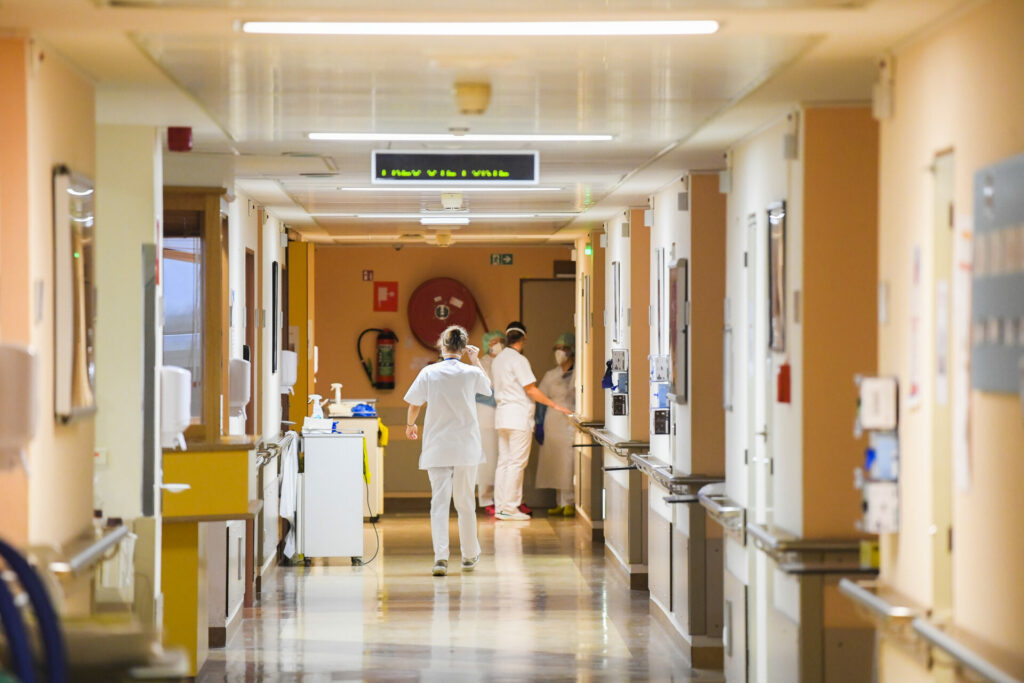Over half of nurses in Brussels and Wallonia are at risk of emotional exhaustion, the General Union of Nurses of Belgium (AUVB) said in an election memo. They are calling on policymakers to take action and confront the physical and mental complaints of Belgian nurses.
One in ten nurses in Belgium is currently on sick leave, recent research shows. This figure is increasing, while the number of patients also continues to rise due to the ageing population, the AUVB stressed. Nurses in Brussels and Wallonia are most at risk of emotional exhaustion, with more than half of them affected.
"One cause is the high nurse-to-patient ratio in our country: one nurse for 11 patients. The European average is eight patients per nurse," the AUVB said. "This leads to nurses becoming overworked and wards being forced to close."
"During the Covid-19 pandemic, nurses were working overtime on the frontline, fighting for everyone's health. When the applause died away, little political commitment remained to really thank them and give them what they deserved: structural support for this vital sector."
No support
In the memorandum, the AUVB lets the nurses speak for themselves, who are presented as patients. Among them, home care nurse Mehdi Amayskar (28) testified about the lack of practical and financial support in his industry, leading him to suffer from back problems from an early age.
"When I call around for a wheelchair, a lift or other equipment to support my patient, it is often all on loan. If there is no wheelchair available but you need to wash someone, you have to support or carry the patient to the bathroom yourself. I have really hurt my back as a result," he said.
Chief internal medicine nurse Alexandra Aachen (52) spoke of "countless meetings where the management unilaterally informed nurses of decisions." This resulted in nurses becoming demotivated, or performing the work on autopilot.
The solution to this is the development of more "nursing leadership," she said, adding that among other things, a nursing council and nursing management could bring relief.
Related News
- Belgium records higher rate of medical mistakes during hospital stays
- Belgian healthcare providers required to speak at least French, Dutch or German
Final-year nursing student Baptiste Vandamme (22) denounced the heavy student internships within a "confusing" proliferation of various nursing courses. "Currently, I am doing an internship in the emergency department. It is intense and tough. Due to staff shortages, we are just expected to work without consistent supervision."
Vandamme says that efforts should therefore be made to encourage lifelong learning and a uniform training pathway where everyone is taught the same competencies.
In contrast, critical care nurse Yves Maule (51) noted that she frequently suffers from intense fatigue, muscle pain and lowered immunity due to long Covid. "Due to the nursing shortage and the lack of appreciation, the job is extremely hard. I have been working in the emergency department for more than 25 years now and I have seen many nurses come and go overworked and disillusioned. I can understand why."
In summary, Belgium's next governments should work towards a lower nurse-to-patient ratio, more autonomy and control in the workplace, uniform training, a revaluation of the profession and pay more attention to ethical considerations within healthcare policy, the AUVB stressed.

